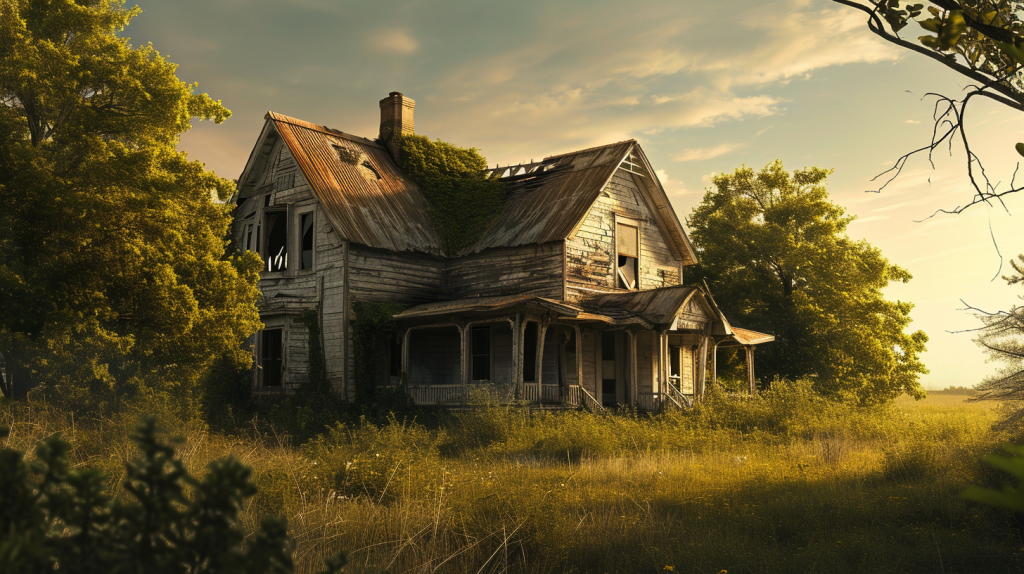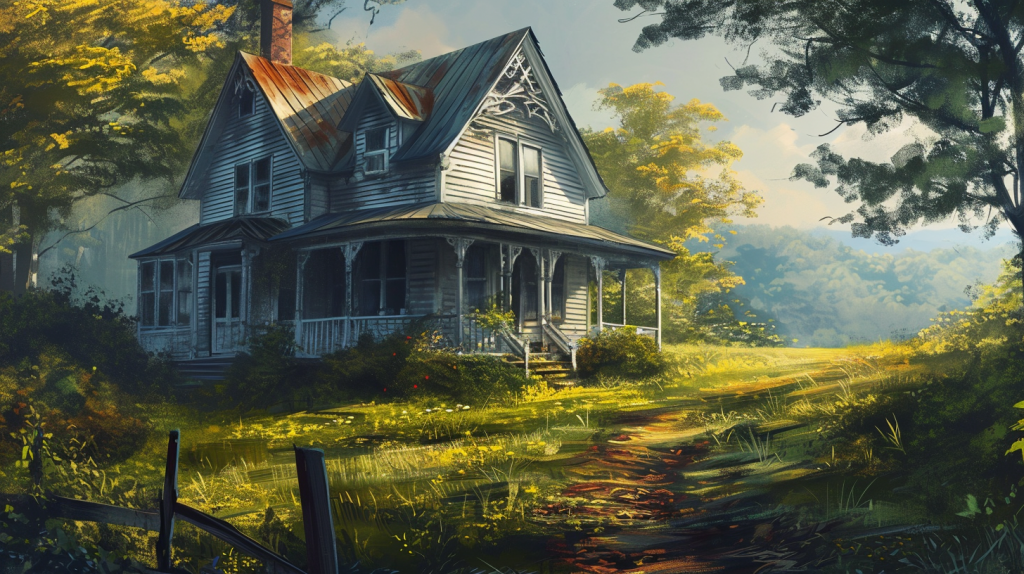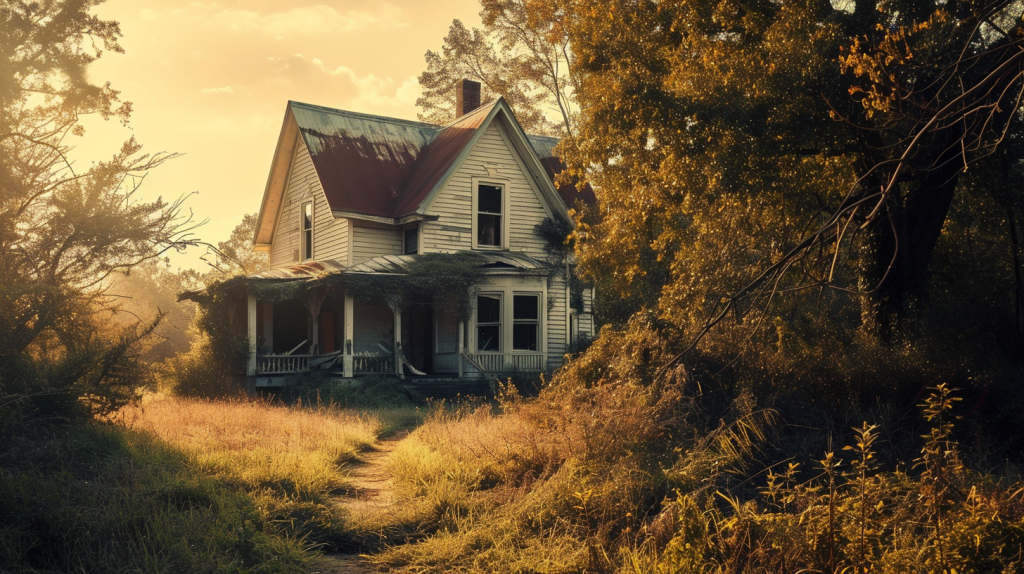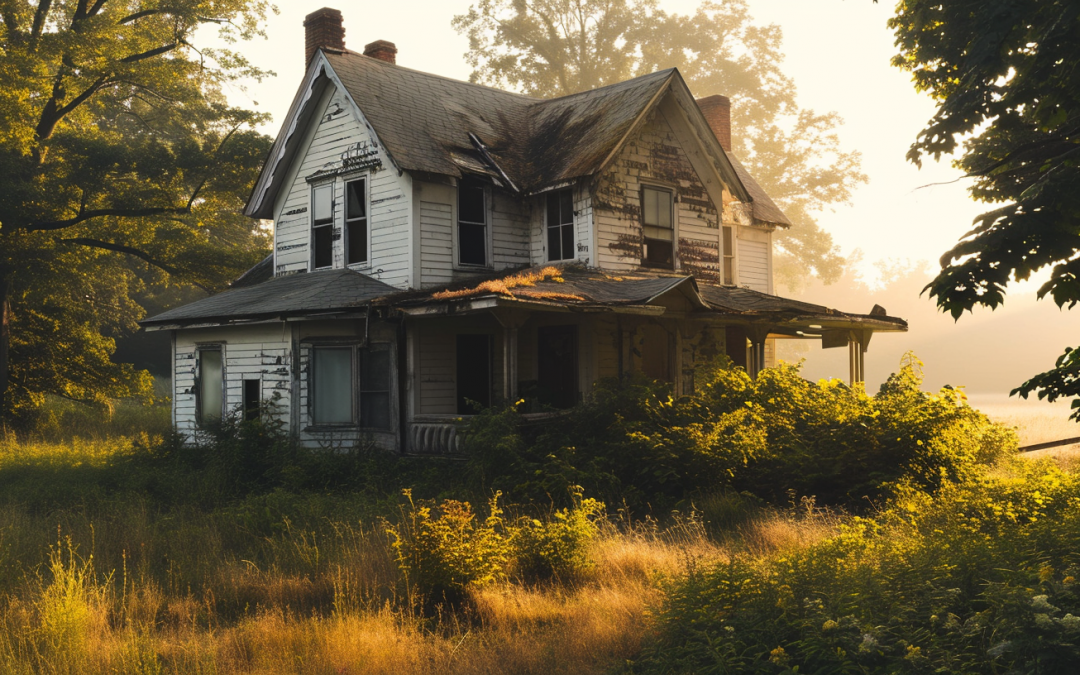Dreaming of your childhood home often symbolizes nostalgia, memories, or a desire to reconnect with elements from your past. It suggests a reflection on foundational aspects of your identity and the significance of your early experiences.
Keywords : Nostalgia, Memories, Identity.
Rating : 75% Positive / 25% Negative
Ever woken up puzzled by a dream about your childhood home? You’re not alone. These dreams can be nostalgic, comforting, or sometimes unsettling, but they’re always packed with meaning. Your subconscious mind might be taking you on a trip down memory lane for a reason.
Unlocking the symbolism of your childhood home in dreams can reveal insights into your current life situation, personal growth, and deep-seated emotions. In this article, we’ll explore the various interpretations of these personal dreamscapes and what they could signify for you. Stay tuned as we delve into the hidden messages behind your slumbering mind’s nostalgic journey.
Exploring Childhood Home Dreams

When you find yourself wandering through the rooms of your childhood home in a dream, it’s essential to consider the emotions you feel. Are you engulfed in warmth and nostalgia, or does the experience conjure a sense of loss or fear? Emotional cues within the dream can guide your interpretation, offering insights into unresolved feelings or comfort in times of change.
Often, the state of the house in your dream mirrors your current life situation. A well-maintained childhood home might signify that you’re at peace with your past, whereas a neglected or damaged home could indicate lingering issues that need your attention. It’s crucial to note the condition of the house as it may symbolize your inner state:
- A bright and inviting home could reflect a period of positivity and growth.
- A locked door or an inaccessible room might represent an aspect of your life that you are avoiding or unexplored potential.
- Renovations or changes to your old home suggest personal transformation or an evolution in your thinking.
Encounter with family members during these dreams should not be overlooked. They could be offering you wisdom, comfort, or even warning you about current behaviors. If you’re interacting with younger versions of yourself or your family, you might be revisiting the dreams, fears, or aspirations you had as a child.
Pay attention to specific objects or rooms within the childhood home:
- Your old bedroom could symbolize privacy or personal development.
- The kitchen, often the heart of the home, may relate to nourishment or family bonds.
- An attic or basement could point to repressed memories or hidden aspects of your personality.
Each element of your dream is a piece of the puzzle that can unlock understanding of your subconscious. As you explore these dreams, remember that they are uniquely yours. While the interpretations might be widely accepted, your experiences and feelings will ultimately dictate the meaning behind the childhood home that arises in your slumber.
The Power of Nostalgia in Dreams
When you dream of your childhood home, nostalgia often weaves its complex threads through the tapestry of your subconscious. This evocative emotion can be immensely powerful, sometimes overwhelming you with a poignant yearning for the past. Nostalgia’s role in your dreams can shed light on your longing for security or a simpler time when responsibilities were few.
Nostalgia acts as a psychological resource that you may draw upon during challenging periods or transitions in your life, bringing a sense of comfort and familiarity. These dreams can become a safe haven, offering you respite and the fortitude to face your current stressors. Even more so, they allow you to reconnect with your personal history, providing a sense of continuity and identity.
The memories of your childhood play an active role in shaping your present, by reminding you of your formative experiences and intrinsic values. Dreams about your childhood home are not mere escapism; they are a reflection of your innate desires and the essence of who you’ve become. Viewing these nocturnal visions through a lens of nostalgia enables you to tap into the emotional reservoirs that help maintain your emotional well-being.
Within the walls of your once-upon-a-time sanctuary, familiar scents, sounds, and sights can be intensely vivid in your dreams, forging a connection between past and present. There’s often an element of bittersweet sentimentality as you traverse through the rooms of your past, each corner holding a different shard of memory. These fragments pieced together create a narrative that informs your current journey and personal growth.
Interactive moments with past selves or family members in these dreams can provoke a reflection on the lessons learned and the love shared. Details like the warmth of a kitchen or the solace of a childhood bedroom evoke the comfort of belonging and the purest forms of love you’ve known.
It’s clear that dreaming about one’s childhood home isn’t just a stroll down memory lane; it unveils your deepest sentiments and can inspire introspection and self discovery. As you continue to explore the significance of these dreams, consider how they reveal more than just a longing—they’re a dialogue with your soul.
Uncovering Symbolism: What Your Childhood Home Represents

When you dream about your childhood home, you’re entering a space rich with symbolism and personal significance. Your subconscious uses this familiar setting to communicate deeper messages about your current life circumstances. Let’s delve into what these symbols might convey.
For many, a childhood home in a dream symbolizes security and comfort. It’s a refuge from the complexities of adult life, a haven where you felt cared for and protected. If you’re navigating stress or anxiety, your mind might be seeking solace in these comforting memories.
On the flip side, this dream setting can also uncover hidden anxieties. If your dream includes a neglected or deteriorating childhood home, it could signify unresolved issues or a longing to address neglected aspects of your personal growth.
Your childhood home might represent your foundations. The condition of the home in your dreams can reflect your feelings about your upbringing and personal history.
- A well-kept home may suggest a solid grounding and strong personal identity.
- Conversely, a chaotic or damaged home could indicate foundational insecurities or a need for self-repair.
Dreams where you’re revisiting your childhood home but find it unrecognizable may speak to your fear of losing touch with your roots or a sense of self that has evolved past recognition. Such a dream invites you to consider what parts of your past you hold onto and what has changed fundamentally about you.
Ambitions and desires can also be woven into these dreams. The childhood home often houses our earliest dreams and where we first felt the stirring of ambition. If your dream involves exploring new rooms or finding hidden spaces, it might be pointing you towards untapped potential or new opportunities waiting to be discovered.
Remember, the meanings of dreams are as unique as the dreamer. Paying attention to your emotions and the condition of the home can unlock insights tailored to your current journey.
Interpreting Childhood Home Dreams: A Guide
When you’re interpreting dreams about your childhood home, it’s essential to focus on the emotions you feel during the dream and the home’s condition. These elements are pivotal in unlocking the dream’s significance for your waking life.
Here are some steps to guide you through the process:
- Begin by recalling the emotional atmosphere of the dream. Were you feeling nostalgic, anxious, joyous or scared? Your emotional response provides clues about what your subconscious might be communicating.
- Examine the state of the childhood home. Is it dilapidated, renovated, or just as you remember it? The home’s condition often symbolizes your current feelings about your past.
- Consider the activities and interactions within the dream. The presence of family members or the actions you’re performing might relate to unresolved issues or fond memories.
- Reflect on any changes in the home or its environment. Alterations could signify how you perceive the difference between your past and present life stages.
Dreams are subjective, so your experiences, fears, hopes, and relationships will color the interpretation. Dreaming of a childhood home can mean returning to simpler times or confronting aspects of your formative years you’ve carried forward. It’s less about the actual house and more about what it represents in the tapestry of your life.
To dive deeper, keep a dream journal to detect patterns or recurring themes. This practice can enhance your self-awareness and aid in personal growth.
Remember, the interpretation of dreams about a childhood home is not one-size-fits-all. It requires introspection and a keen eye for detail within the narrative of your dream. Listen to the whispers of your subconscious and you may uncover valuable insights about your internal world.
Understanding the Emotional Impact of Childhood Home Dreams

When you dream about your childhood home, you’re not just revisiting a physical space, but you’re also tapping into a reservoir of past emotions. The emotional impact of these dreams can range from comforting nostalgia to unsettling revelations about your present life.
Dreams of your childhood home often emerge when you’re going through significant life transitions or facing stress. They might signal a longing for the security and simplicity of your youth, or they could represent unresolved issues needing your attention. Assessing the emotions you felt during the dream provides crucial insights into what your subconscious is communicating.
Remember that childhood home dreams are personal, and their emotional impact varies. For instance, a dream about a warm, vibrant home could leave you waking up feeling revitalized and loved, while a dream about a dilapidated and empty house might trigger feelings of loneliness or abandonment. Each emotive nuance paints a broader picture of your inner state.
Additionally, these dreams may bring up feelings that you’ve carried into adulthood, deeply rooted in your formative years. If you experience happiness in the dream, you may be longing to reconnect with certain positive elements of your past. Conversely, anxiety or fear could reflect current insecurities or challenges echoing those early life experiences.
To navigate these emotions, it’s helpful to:
- Pay close attention to the dream’s details and your reactions.
- Ask yourself if these feelings are reflective of current situations in your life.
- Consider if there are any lessons or messages that you can draw from the dream.
By engaging with the emotional dimensions of your childhood home dreams, you’ll uncover layers of meaning that can help guide your personal development and emotional well-being. It’s like piecing together a puzzle; each dream adds another piece, providing greater understanding of yourself and your journey through life.
Conclusion: The Hidden Messages within Childhood Home Dreams
Dreaming about your childhood home often holds a mirror up to your inner world, revealing deep-seated emotions and unresolved issues. It’s a journey through your subconscious that can offer profound insights into your current life situation. Take these dream experiences as opportunities to connect with your past and understand its influence on your present. By doing so, you’ll be able to move forward with greater clarity and purpose. Remember, your dreams are a unique and personal reflection of you, so embrace them as a tool for self-discovery and growth.

